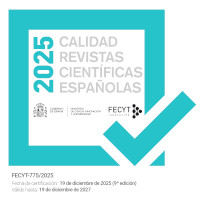Policy on the use of AI
At Textual and Visual Media we are firmly committed to scientific integrity and transparency in the use of artificial intelligence (AI). This policy sets out clear guidelines on the appropriate use of AI tools by authors, reviewers and editors.
General principles
In accordance with the guidelines of the COPE Statement and the best practices of the scientific community:
- AI tools cannot meet authorship criteria, as they cannot take responsibility for scientific content.
- They cannot manage conflicts of interest, copyright or make ethical decisions on their own.
Authors' use of AI
Declaration of use
Authors must explicitly declare the use of any AI tools in the writing or analysis of their manuscripts. The software used, the functions applied and the sections of the manuscript in which it has been employed must be specified.
Responsibility for originality
The author is fully responsible for the originality of AI-generated or AI-assisted content. Such content must not infringe the rights of third parties and must not be plagiarised.
Review of AI-assisted content
Authors should carefully review and check any AI-generated content for bias, errors or inaccuracies.
Use of AI in peer review
Declaration of the use of AI by reviewers
If reviewers use AI tools to support the evaluation of a manuscript, they must declare this use. AI can serve as a support, but the critical judgement and final evaluation must be performed exclusively by human beings.
Manuscript evaluation
Responsibility for scientific evaluation cannot be delegated to AI. AI should be used only as a complement, never as a substitute for the reviewer's expert judgement.
Use of AI by the editorial team
The editorial team may use AI tools for administrative or editing tasks, such as manuscript formatting or plagiarism detection, under strict human supervision to ensure consistency, quality and ethical compliance.
Ethics in the use of AI
The use of AI must not, under any circumstances, result in data manipulation, plagiarism or infringement of intellectual property rights. Any intentional or unintentional misuse will be handled in accordance with COPE's policies and other ethical standards in force at the publisher.
Evaluation and updating of the policy
This policy will be reviewed periodically to adapt to technological advances in AI and to ensure the adoption of best practice in scientific publishing.
Consequences of non-compliance
Failure to comply with this policy may result in penalties, including withdrawal of the manuscript or prohibition of future submissions to this journal.























